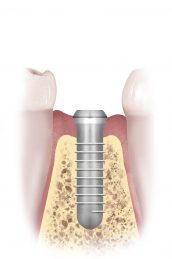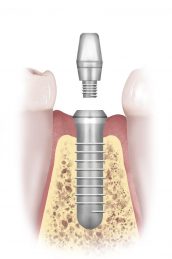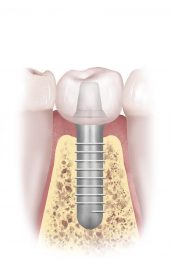About Dental Implants
Dental implants have restored the smiles of millions of patients throughout the world, giving them replacement teeth that look, feel and function like natural teeth.
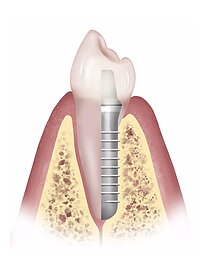
Dental Implants Are the Preferred Method of Tooth Replacement
- Dental implants are the only tooth replacement option that prevents the bone resorption/deterioration that occurs when a tooth is lost or removed.
- This is also the only treatment option that preserves the adjacent teeth, as opposed to cutting them down to place a bridge or hooking a partial denture to them.
- Dental implants have by far the best long-term success rates of any treatment option - and this has been documented in scientific literature for over four decades.
- Since dental implants are designed to last a lifetime, preserve bone and do not compromise the long-term health of adjacent teeth, dental implant treatment is the most cost-effective option long-term.
How Do Dental Implants Compare to Other Options?
Treatment options for replacing missing teeth include the following:
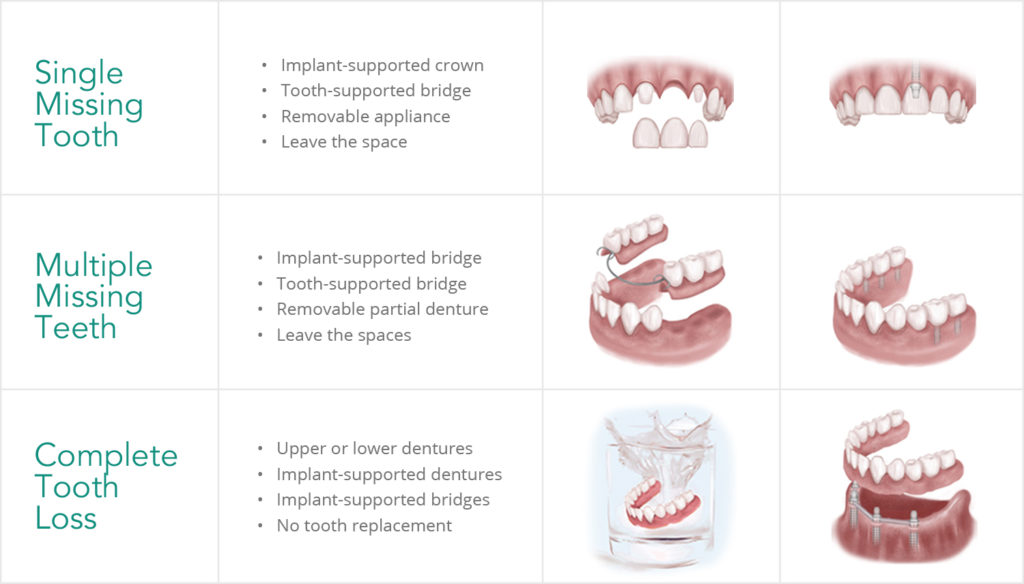
Benefits of Dental Implants
Dental implants have several unique benefits that are not provided by other treatment options for tooth replacement.
Maintain Facial Structures. When a tooth is lost or removed, the bone that previously surrounded the tooth root resorbs, or melts away. By replacing the root of your tooth with a dental implant, your jawbone and smile retain their shape. If you are missing all of your teeth, implant-supported replacement teeth will preserve the integrity of your facial structures and prevent the shrinkage of your jaws and the appearance of a collapsed face.
Preserve Surrounding Teeth. Tooth-supported bridges and partial dentures compromise the long-term health of your teeth. With dental implants, it is not necessary to cut the adjacent teeth down to place a bridge, or hook a partial denture onto natural teeth, which can cause them to loosen and eventually be removed.
Restore Natural Appearance. Dental implants were developed to replicate the appearance of your natural teeth – and preserve your bone and gum tissue to maintain the natural appearance of your smile. By placing the dental implants in the precise position, your surgeon will provide the ideal foundation for your dentist to create beautiful replacement teeth that closely match your natural teeth.
Designed to Last a Lifetime. Because dental implants are designed to last a lifetime, they have a better long-term success rate than any other tooth replacement option. Documented clinical research demonstrates that dental implants have a success rate of over 95%, which is significantly higher than tooth-supported bridges and partial or full dentures.
For more information about the benefits of dental implants visit The Dental Implant Guide
Are You a Candidate for Dental Implants?
During your consultation, your surgeon will determine:
- The quality and quantity of bone where the implant(s) will be placed.
- The number of dental implants needed to achieve the optimal result.
- Other procedures that may be necessary to enhance esthetics or function
What Happens During the Treatment Process?

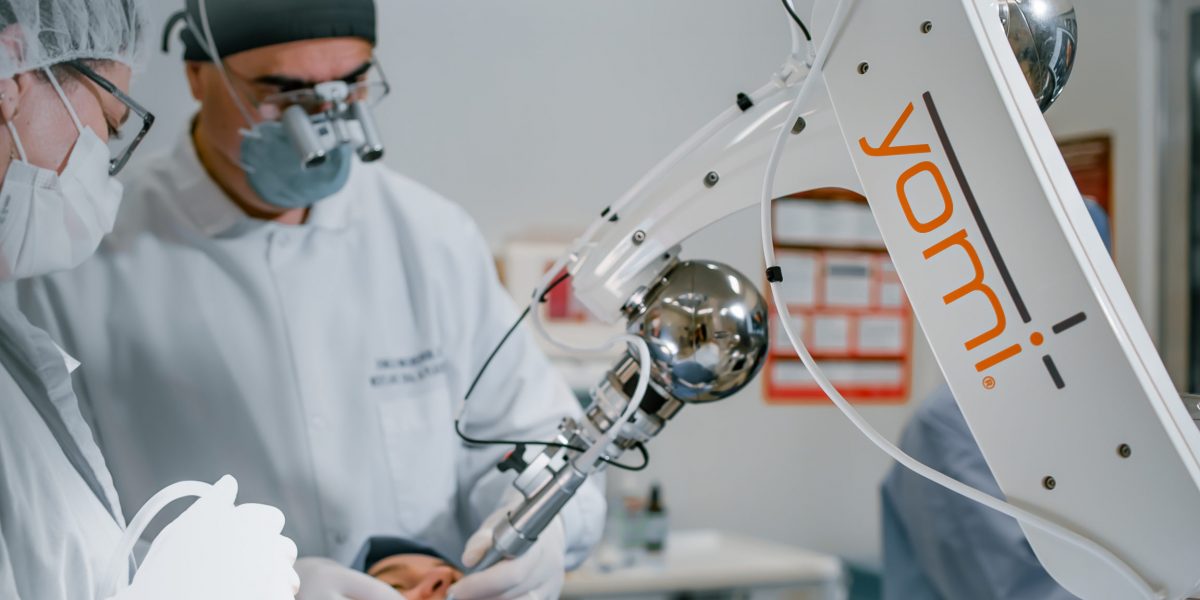
What Happens During the Treatment Process?
If the tooth to be replaced has not yet been removed, the first procedure is surgical removal of the tooth. If your surgeon determined that you do not have sufficient bone for a dental implant, you will need a bone graft in the site where the implant will be placed. In some cases, implant placement can be completed immediately following tooth removal and bone grafting. In other cases, the implant will be placed several weeks after the surgical removal of the tooth and placement of a bone graft.
